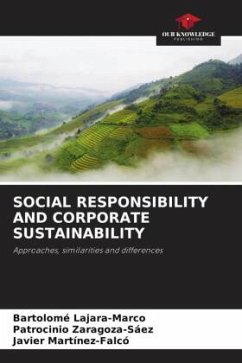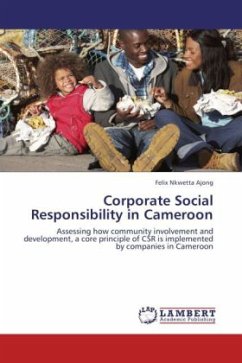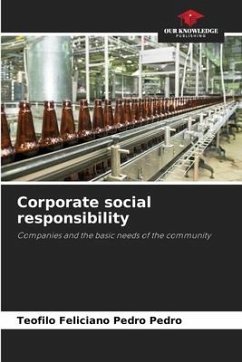
Corporate Social Responsibility in Cameroon
Versandkostenfrei!
Versandfertig in 6-10 Tagen
36,99 €
inkl. MwSt.

PAYBACK Punkte
18 °P sammeln!
Corporate Social Responsibility means "the voluntary integration of social and environmental concerns into a company's business operations and stakeholder relations. Being socially responsible means not only fully meeting applicable legal obligations, but also going beyond them and investing more in human capital, the environment and stakeholder relations." It is therefore a responsibility towards the effects they have on society. Applied in the Cameroonian extractive sector, CSR is quite proven in its characters. Indeed, the legal framework of CSR in Cameroon is transversal and most of the ru...
Corporate Social Responsibility means "the voluntary integration of social and environmental concerns into a company's business operations and stakeholder relations. Being socially responsible means not only fully meeting applicable legal obligations, but also going beyond them and investing more in human capital, the environment and stakeholder relations." It is therefore a responsibility towards the effects they have on society. Applied in the Cameroonian extractive sector, CSR is quite proven in its characters. Indeed, the legal framework of CSR in Cameroon is transversal and most of the rules inherent to this sector were elaborated with the aim of promoting investments and fighting against poverty. Hence the concern about its legal regime. On observation, this framework is partisan insofar as its content reveals inconsistencies. It is therefore a relatively opaque framework, which is revealed by its lack of fluidity and its lack of constraint for companies. However, it offersfairly conclusive arguments to encourage the extractive industries to adopt responsible and responsible behaviour. For, it is a question of companies acting, in an extensive way, on the gaps and the unspoken aspects of the law to finally structure their CSR actions and thus demonstrate self-regulation.












